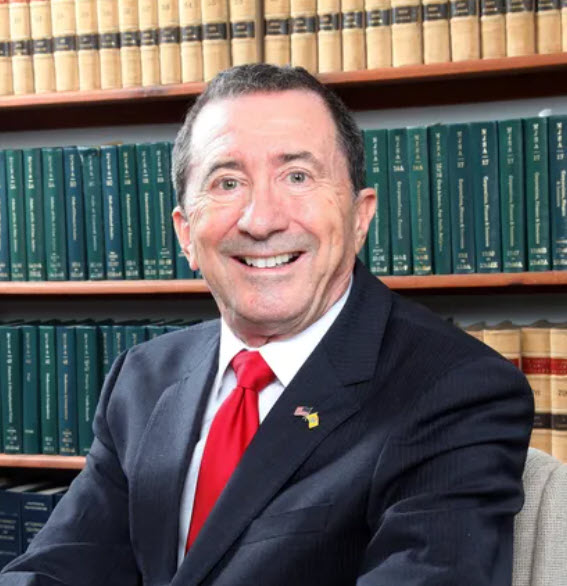
Photo from https://www.washingtoncrossingpark.org/.
Each Christmas Day, several thousand visitors stand for hours by the Delaware River, just north of Trenton. There, at Washington’s Crossing Park, they watch dozens of re-enactors dressed as soldiers of the state militias and Continental Army of 1776. Usually, the re-enactors board large wooden boats and row from Bucks County, Pennsylvania to the New Jersey side. This is done to remember what George Washington and his 2500 American volunteers did on that remarkable Christmas night of 1776.
This year, high river water on Christmas Day made it too dangerous to re-enact the actual crossing. However, conditions were far worse for the original crossing on a bitter cold night through an ice-filled river. That original crossing is depicted in the iconic 1851 painting by German artist Emanuel Leutze. That crossing began ten fateful days in New Jersey that created America and changed the world.

German artist Emanuel Leutze had no idea what the Delaware River looked like when he painted this. However, he brilliantly captured the spirit of Americans winning their freedom and enlightening the world.
As Abraham Lincoln often explained, Americans did far more than merely declare our independence from the British Empire on July 4, 1776. We also told the world and ourselves that our new nation would be guided by these “self-evident” truths: We are all created equal. We are endowed by our Creator with certain unalienable rights. That among these are life, liberty, and pursuit of happiness. That governments are instituted to secure those rights, exercising their just powers with the consent of the governed.

Abraham Lincoln 2/22/1861: “I have never had a feeling politically that did not spring from the sentiments embodied in the Declaration of Independence”.
Five months later, American independence and those inspiring words seemed as dead as thousands of patriots in Ireland, Scotland, and India who fought and died in previous failed rebellions against British rule.
One week after the Declaration of Independence was signed and published in Philadelphia, a massive British invasion fleet arrived in New York Harbor. Its 300 warships and 400 transports brought 30,000 well paid, trained, and disciplined British and German soldiers to Staten Island New York.

During the next three months, the British and Germans overwhelmed George Washington?s 10,000 poorly trained volunteers defending Long Island and Manhattan, They killed or captured half of them. The Germans were especially brutal. They used bayonets to execute hundreds of Americans after they dropped their weapons, raised their hands and surrendered.
In November, 1776, George Washington and his 5,000 remaining soldiers crossed the Hudson River. They expected to make a stand in Hackensack with support from New Jersey militias. However, the militias of North Jersey failed to show up. Without their support, Washington’s men were badly outnumbered. They quickly fled towards Philadelphia to avoid capture. They didn’t stop retreating until after they crossed the Delaware River into Pennsylvania–and seized every boat on the Jersey side of the river that they could find.

That December, a disgusted George Washington wrote a letter to his brother saying:
The conduct of the Jerseys has been most infamous. Instead of turning out to defend their country. . . they are making their submissions as fast as they can. . . The few militias that were in arms disbanded themselves. . . and left the poor remains of our army to make the best we could of it.
Patriot journalist Thomas Paine was also angry. He said the British left Massachusetts and the rest of New England alone and chose to occupy New York and New Jersey because ?New England was not infested with Tories (British sympathizers), and we are!?
Thomas Paine was particularly angry at one ?prosperous business owner? in Amboy, New Jersey. According to Paine, that Tory agreed that Americans would sooner or later have to fight to separate from the British Empire. However, as he stood next to his 8 year old child, the Tory said he would not help George Washington?s soldiers because he wanted ?peace in my day?.
This infuriated Thomas Paine. ?A generous parent should have said, ?If there must be trouble, let it be in my day so that my child may have peace?. Paine went on to say ?This single reflection, well applied is sufficient to awaken every man to his duty?.
Thomas Paine?s experience in New Jersey inspired him to write and publish a pamphlet called The American Crisis on December 23, 1776. It began with these words:
These are the times that try men?s souls: The summer soldier and the sunshine patriot will, in this crisis, shrink from the service of his country; but he that stands it NOW, deserves the love and thanks of man and woman.

While Thomas Paine was writing, George Washington?s battered soldiers got help from a most unlikely source ? pacifist Quaker farmers from South Jersey! Quakers came to America to escape the wars of Europe. They included William Penn who established Philadelphia. They also included the Smith, Somers, Risley, Scull, Conover, and Leeds families who settled near what is now Atlantic City.
However, once in America, these Quakers slowly changed their thinking. They became ?fighting Quakers? who believed God permitted ?defensive war? to protect their lives. their wives and daughters, and their property.
When German soldiers hired by the British occupied Central Jersey, they began stealing food, destroying property, and abusing women in the Quaker towns and farms they occupied. (Those Germans were often called “Hessians” because most of them were under the command of the Prince of the German province of Hesse. The Prince of Hesse profited from his army by renting it to the British when it was not needed at home).
Companies of Quaker militias throughout southern and central Jersey began fighting back. One of them was the Gloucester County Militia led by Colonel Richard Somers of Somers Point. Colonel Somers was the father of the future Barbary Wars/Tripoli navy hero with his same name. At that time, what is now Camden and Atlantic Counties were all part of Gloucester County.
The words of Thomas Paine and the actions of these ?fighting Quakers? persuaded Washington to return to New Jersey and attack 1,200 Germans troops in Trenton.
As soon as it got dark late Christmas Afternoon, 1776, Washington?s 2,500 volunteers assembled on the Pennsylvania side of the Delaware River just north of Trenton. They then rowed across the icy river, and marched south to Trenton on the Jersey side. There were strong winds, wet snow and freezing rain. Several of Washington’s exhausted soldiers fell and died from the cold.

When they arrived at Trenton, Henry Knox and his young assistant Alexander Hamilton skillfully deployed their cannons. They quickly mowed down the Germans when they formed into line to fight.

Henry Knox was a bookseller from Boston. He learned to operate cannons by reading books. He surprised the Germans with cannon fire in a freezing rainstorm by ?keeping his powder dry?. Knox used the same wax seals and packaging that kept books dry when he shipped them to customers.
The Americans killed 20 Germans, including their commander. Another hundred were captured and roughly 1,000 were taken prisoners. The Germans then were already among the best trained and disciplined soldiers in the world. Rather than admit the Americans had defeated their best troops, the British later spread false rumors that their German mercenaries were half drunk or asleep from a late night Christmas Party.
George Washington ordered his soldiers not to punish German prisoners for their brutality against surrendering Americans three months before and to “treat them with humanity”. It was a propaganda coup. The German prisoners wrote letters home to Germany praising the Americans, and many brought their families and settled here after the war.
After learning of Washington?s attack, General Charles Cornwallis quickly marched his main British Army from New Brunswick to attack Washington?s army in the Second Battle of Trenton on January 2. Washington?s outnumbered soldiers stood their ground. That night, they quietly slipped away from Trenton and then surprised the British from behind at Princeton the following day.

News of these three victories, and the inspiring words of Thomas Paine, quickly spread throughout the American colonies. Thousands of young Americans volunteered to join Washington?s army. There would be five more years of hardship and struggle. However, American independence, liberty and prosperity were all saved during those ten fateful days in New Jersey that began with Washington’s Crossing of the Delaware on Christmas night in 1776.
Years later, America ended the Holocaust and saved Europe from Hitler and Communism. America also saved China and East Asia from mass murder and brutal invasion and occupation by Imperial Japan. Without the America that was saved during those ten days in New Jersey that began on Christmas, 1776, today’s world would be a much darker place.
Seth Grossman
453 Shore Road
Somers Point, NJ 08244
(609) 927-7333

